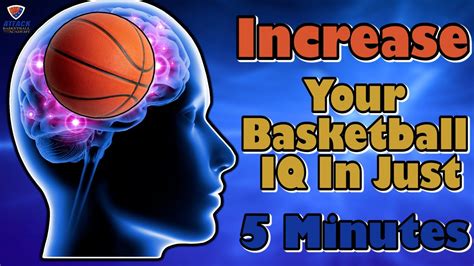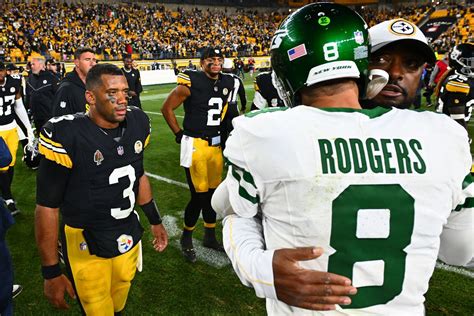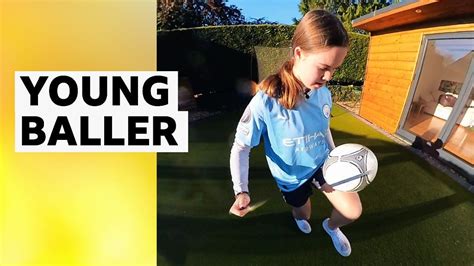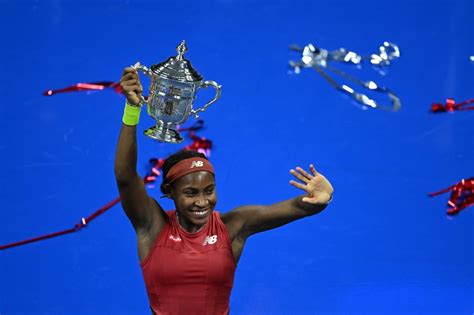
Larry Bird’s unparalleled basketball IQ continues to be lauded, with Boston Celtics legend Danny Ainge recently reaffirming Bird’s exceptional understanding of the game, emphasizing his unique ability to anticipate plays before they unfolded.
Danny Ainge, the former Boston Celtics player and executive, has once again highlighted Larry Bird’s extraordinary basketball intelligence, asserting that Bird possessed an unmatched ability to foresee plays and understand the nuances of the game. Ainge’s comments underscore Bird’s reputation as one of the most cerebral players in NBA history, celebrated not just for his skills but also for his strategic acumen.
“He would see things happen before they would happen,” Ainge remarked, reflecting on his time playing alongside Bird. This innate ability allowed Bird to consistently make the right plays, positioning himself perfectly on the court and anticipating his opponents’ moves with uncanny accuracy. Ainge’s observations reinforce the widely held belief that Bird’s mental processing speed and understanding of basketball strategy were unparalleled.
Larry Bird’s basketball IQ was a combination of several key attributes: court awareness, anticipation, strategic thinking, and exceptional memory. His court awareness was arguably his strongest trait. Bird had an uncanny ability to see the entire floor, understanding where every player was positioned and how they were likely to react. This awareness allowed him to make pinpoint passes, often threading the needle between defenders, and to position himself for rebounds and scoring opportunities.
Anticipation was another crucial aspect of his basketball IQ. Bird had an innate sense of where the ball was going and what the opposing team was planning. He could anticipate passes, steals, and defensive rotations, giving him a step ahead of his opponents. This anticipation was not just based on guesswork; it came from years of studying the game and understanding the tendencies of his opponents.
Bird’s strategic thinking was evident in his ability to analyze the game in real-time. He understood the importance of spacing, ball movement, and defensive positioning. He could quickly identify weaknesses in the opposing team’s defense and exploit them. His strategic mind was also evident in his ability to make adjustments on the fly, changing his approach based on the flow of the game.
Finally, Bird had an exceptional memory. He could recall specific plays, defensive schemes, and tendencies of opposing players. This memory allowed him to learn from past experiences and apply those lessons to future games. He could remember how a particular defender guarded him in a previous game and adjust his strategy accordingly.
Larry Bird’s court vision was legendary, often described as “seeing the game in slow motion.” This wasn’t just about spotting open teammates; it was about understanding the entire court dynamic, including player movements, defensive rotations, and scoring opportunities. Bird used his court vision to orchestrate the Celtics’ offense, directing traffic and making split-second decisions that often led to easy baskets.
One of the most memorable examples of Bird’s court vision came in the 1987 Eastern Conference Finals against the Detroit Pistons. With the Celtics down by one point and just seconds remaining, Bird stole an inbound pass from Isiah Thomas and passed it to Dennis Johnson for the game-winning layup. Bird’s court vision allowed him to anticipate Thomas’s pass and make the play that saved the game.
Bird’s passing ability was another key component of his high basketball IQ. He wasn’t just a passer; he was a playmaker, using his passes to create scoring opportunities for his teammates. Bird had an uncanny ability to anticipate where his teammates would be and deliver the ball to them at the perfect moment. He also had a knack for making no-look passes, often surprising defenders and creating easy baskets.
Bird’s passing skills were not just about physical ability; they were also about intelligence and creativity. He had a deep understanding of angles, timing, and player movement. He could use his passes to manipulate the defense, creating space for his teammates and opening up scoring lanes.
Larry Bird’s knack for making clutch plays was a testament to his mental toughness and his ability to perform under pressure. Whether it was a game-winning shot, a crucial rebound, or a timely steal, Bird consistently came through in the most important moments. This ability to perform under pressure was not just about luck; it was about preparation, focus, and a deep understanding of the game.
Bird’s clutch performances were often the result of his ability to analyze the situation and make the right decision. He knew when to shoot, when to pass, and when to take the ball to the basket. He also had the confidence to take the big shot, even when the odds were stacked against him.
Larry Bird’s impact on the game of basketball extends far beyond his individual statistics. He was a transformative player who helped to popularize the NBA in the 1980s and inspired a generation of players. Bird’s combination of skill, intelligence, and passion for the game made him one of the most beloved and respected figures in basketball history.
Bird’s influence on the game can be seen in the way that players approach the game today. His emphasis on fundamentals, teamwork, and basketball IQ has become a model for aspiring players at all levels. He also helped to break down racial barriers in the NBA, proving that talent and intelligence are not limited by race or background.
Ainge’s praise aligns with widespread recognition of Bird’s impact on the sport. During his 13-year career with the Boston Celtics, Bird led the team to three NBA championships, three MVP awards, and two Finals MVP awards. His rivalry with Magic Johnson of the Los Angeles Lakers is credited with revitalizing the NBA in the 1980s, drawing massive television audiences and expanding the league’s popularity globally.
Beyond his individual accolades, Bird’s influence is seen in his ability to elevate the performance of his teammates. He made those around him better through his exceptional passing, court vision, and strategic understanding of the game. He was a true leader on the court, constantly directing traffic and making sure everyone was in the right position.
Larry Bird’s competitive spirit was legendary. He thrived on challenges and always wanted to win, no matter the circumstances. This competitiveness was not just about individual glory; it was about team success. Bird understood that basketball is a team game and that winning requires everyone to work together towards a common goal.
Bird’s competitive spirit was often on display during games. He would trash-talk opponents, challenge them to one-on-one matchups, and do whatever it took to get an edge. But his competitiveness was always rooted in respect for the game and his opponents. He never crossed the line into dirty play or unsportsmanlike conduct.
Bird’s coaching career, albeit brief, also demonstrated his profound basketball knowledge. After retiring as a player, Bird coached the Indiana Pacers from 1997 to 2000, leading them to the NBA Finals in 2000. His coaching success further solidified his reputation as a basketball genius, capable of translating his understanding of the game into effective strategies and player development.
Bird’s coaching philosophy was based on the same principles that guided his playing career: fundamentals, teamwork, and basketball IQ. He emphasized the importance of spacing, ball movement, and defensive positioning. He also encouraged his players to think for themselves and make smart decisions on the court.
In an era dominated by athleticism and individual performance, Bird stood out for his intellectual approach to the game. He was not the fastest, strongest, or most athletic player, but he was arguably the smartest. His ability to anticipate plays, make quick decisions, and elevate the performance of his teammates made him a truly unique and impactful player.
Bird’s success is a testament to the power of intelligence, hard work, and dedication. He proved that you don’t have to be the most physically gifted player to achieve greatness. By honing his skills, studying the game, and developing his basketball IQ, he was able to reach the pinnacle of his sport.
The sustained recognition of Bird’s basketball IQ, decades after his retirement, underscores the timeless value of intelligence and strategic thinking in sports. While athletic abilities and physical prowess continue to evolve, the fundamental principles of basketball—spacing, passing, defense, and anticipation—remain constant, and Bird’s mastery of these principles continues to serve as a benchmark for players at all levels.
Bird’s legacy extends beyond the basketball court, serving as an inspiration to anyone who seeks to achieve excellence through intellect, hard work, and dedication. His story is a reminder that success is not solely determined by physical attributes, but also by mental fortitude and a deep understanding of one’s craft.
Ainge’s recent comments serve as a timely reminder of Bird’s enduring impact on the game, reinforcing the notion that basketball IQ is a crucial component of greatness. As the NBA continues to evolve, the lessons learned from Bird’s career remain relevant, providing a blueprint for players who aspire to reach the highest levels of success. His strategic approach, combined with his exceptional skills, made him a force to be reckoned with on the court and a model for future generations of basketball players.
The modern NBA, with its emphasis on analytics and advanced statistics, further highlights the importance of basketball IQ. Teams now have access to vast amounts of data that can be used to analyze player performance, identify weaknesses in opposing defenses, and develop sophisticated game plans. However, this data is only useful if players and coaches have the basketball IQ to interpret it and apply it effectively.
Players with high basketball IQ are able to process complex information quickly, make smart decisions under pressure, and adapt to changing game situations. They understand the importance of spacing, ball movement, and defensive positioning. They also have the ability to anticipate their opponents’ moves and react accordingly.
The rise of international players in the NBA has also underscored the importance of basketball IQ. Many international players come from basketball cultures that emphasize fundamentals, teamwork, and strategic thinking. These players often excel in the NBA because of their high basketball IQ and their ability to adapt to different playing styles.
Players like Nikola Jokic, Luka Doncic, and Giannis Antetokounmpo are prime examples of international players who have thrived in the NBA due to their exceptional basketball IQ. These players are not just physically gifted; they also have a deep understanding of the game and the ability to make smart decisions on the court.
In conclusion, Danny Ainge’s recent remarks serve as a powerful reminder of the enduring legacy of Larry Bird and his unparalleled basketball IQ. Bird’s ability to anticipate plays, make smart decisions, and elevate the performance of his teammates made him one of the greatest players in NBA history. His example continues to inspire players and coaches at all levels, and his influence can be seen in the way the game is played today. As the NBA continues to evolve, the importance of basketball IQ will only continue to grow, making Bird’s legacy even more relevant in the years to come.
The Boston Celtics dynasty of the 1980s, built around Bird, Kevin McHale, and Robert Parish, showcased the power of teamwork and basketball IQ. These players understood each other’s strengths and weaknesses and played together seamlessly. They were able to execute complex offensive and defensive schemes, and they consistently made smart decisions under pressure.
The Celtics’ success was not just about individual talent; it was about the collective intelligence of the team. Bird, McHale, and Parish were all highly skilled players, but they were even more effective when they played together. They understood the importance of spacing, ball movement, and defensive rotations, and they were always willing to sacrifice individual glory for the good of the team.
Larry Bird’s transition to the front office after his playing career further demonstrated his deep understanding of the game. As an executive, Bird was responsible for making personnel decisions, developing team strategies, and overseeing the overall direction of the franchise. His success in the front office is a testament to his basketball IQ and his ability to evaluate talent.
Bird’s ability to identify and develop young players was particularly impressive. He was instrumental in drafting and developing players like Paul George, Danny Granger, and Roy Hibbert, who all went on to become All-Stars. Bird’s eye for talent and his ability to mentor young players helped to transform the Indiana Pacers into a perennial playoff contender.
The NBA has recognized the importance of basketball IQ by honoring players who excel in this area. The NBA Sportsmanship Award, also known as the Joe Dumars Trophy, is awarded annually to the player who best represents the ideals of sportsmanship on the court. While not explicitly focused on basketball IQ, the award often goes to players who are known for their intelligence, leadership, and respect for the game.
The Basketball Hall of Fame also recognizes players who have demonstrated exceptional basketball IQ. Many of the game’s greatest players, including Larry Bird, Magic Johnson, Michael Jordan, and Bill Russell, have been inducted into the Hall of Fame based on their combination of skill, intelligence, and impact on the game.
The ongoing debate about the greatest players of all time often centers on the question of basketball IQ. While statistics and individual accolades are certainly important, many analysts and fans argue that basketball IQ is the most crucial factor in determining a player’s greatness. Players with high basketball IQ are able to elevate the performance of their teammates, make smart decisions under pressure, and adapt to changing game situations.
The comparison between Larry Bird and LeBron James is a classic example of this debate. While James is arguably the more physically gifted player, many argue that Bird had a higher basketball IQ. Bird’s ability to anticipate plays, make pinpoint passes, and elevate the performance of his teammates is often cited as evidence of his superior basketball IQ.
The future of basketball will undoubtedly be shaped by the continued emphasis on basketball IQ. As the game becomes more complex and data-driven, players and coaches will need to have a deep understanding of strategy, analytics, and player development. The ability to process information quickly, make smart decisions under pressure, and adapt to changing game situations will be more important than ever.
The development of basketball IQ should start at a young age. Coaches and parents should encourage young players to study the game, learn the fundamentals, and develop their strategic thinking skills. By fostering a love of the game and an understanding of its nuances, they can help young players develop the basketball IQ they need to succeed at the highest levels.
In conclusion, Larry Bird’s legacy as a basketball genius is secure. His unparalleled basketball IQ, combined with his exceptional skills and competitive spirit, made him one of the greatest players in NBA history. His influence on the game continues to be felt today, and his example serves as an inspiration to players and coaches at all levels. As the NBA continues to evolve, the importance of basketball IQ will only continue to grow, ensuring that Bird’s legacy will endure for generations to come.
Frequently Asked Questions (FAQ)
Q1: What specific examples does Danny Ainge give of Larry Bird’s high basketball IQ?
A: Danny Ainge specifically stated, “He would see things happen before they would happen.” This implies Bird’s ability to anticipate plays and understand the game at a deeper level than most players. While the article doesn’t provide specific in-game examples from Ainge, it expands on this by detailing Bird’s court awareness, anticipation skills, strategic thinking, and exceptional memory as key components of his basketball IQ, illustrating how these attributes translated into his on-court performance.
Q2: How did Larry Bird’s basketball IQ contribute to the success of the Boston Celtics in the 1980s?
A: Larry Bird’s basketball IQ was a cornerstone of the Celtics’ success in the 1980s. His exceptional court vision, passing ability, and strategic understanding elevated the performance of his teammates, creating a cohesive and effective unit. He wasn’t just a scorer; he was a playmaker who could anticipate opponent’s moves, orchestrate the offense, and make clutch decisions under pressure. He made those around him better through his exceptional passing, court vision, and strategic understanding of the game.
Q3: Besides playing, in what other capacity did Larry Bird demonstrate his high basketball IQ?
A: Bird’s basketball IQ was further demonstrated through his brief but successful coaching career with the Indiana Pacers, where he led them to the NBA Finals in 2000. His coaching philosophy emphasized fundamentals, teamwork, and strategic thinking, mirroring the principles that guided his own playing career. He also excelled as an executive, making personnel decisions and developing team strategies, showcasing his ability to evaluate talent and build a competitive team.
Q4: How does the article connect Larry Bird’s basketball IQ to the modern NBA, particularly concerning international players and analytics?
A: The article connects Bird’s basketball IQ to the modern NBA by emphasizing the increasing importance of strategic thinking and understanding of the game, especially with the rise of analytics and international players. International players often come from basketball cultures that emphasize fundamentals, teamwork, and strategic thinking, aligning with Bird’s approach. The article highlights how players with high basketball IQ can effectively interpret and apply complex data derived from analytics to make smarter decisions on the court.
Q5: What were the key attributes that comprised Larry Bird’s unmatched basketball IQ?
A: The key attributes that comprised Larry Bird’s unmatched basketball IQ were:
- Court Awareness: An uncanny ability to see the entire floor and understand player positions.
- Anticipation: An innate sense of where the ball was going and what the opposing team was planning.
- Strategic Thinking: The ability to analyze the game in real-time and make adjustments on the fly.
- Exceptional Memory: The ability to recall specific plays, defensive schemes, and tendencies of opposing players.
These attributes allowed him to excel in passing, clutch plays, and elevating his teammates’ performance.









